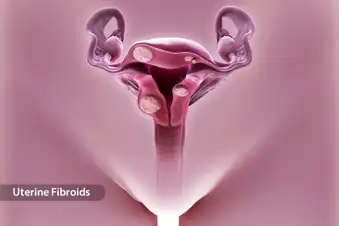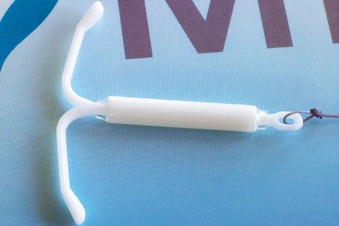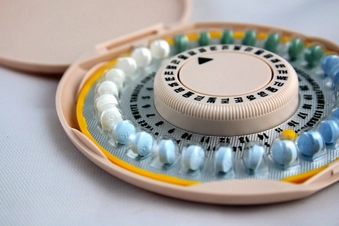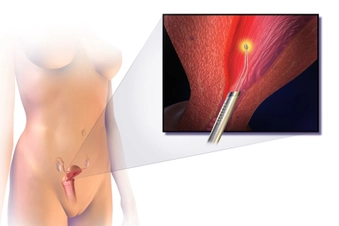Tips on Living With Heavy Menstrual Bleeding

Find Out Why You’re Bleeding So Much
There are ways to manage heavy menstrual bleeding (menorrhagia). But the best treatment for you depends on why you have a heavy flow in the first place. Sometimes the underlying cause isn’t clear. But your doctor will ask about your menstrual cycles and run some other tests to find out if you have fibroids, polyps, a blood-clotting disorder, or another medical condition that needs treatment.

Use Ibuprofen
Nonsteroidal anti-inflammatory drugs (NSAIDs) like ibuprofen and naproxen sodium can ease period pain. But there’s some evidence they may lessen heavy menstrual bleeding by lowering prostaglandin levels. Those are inflammatory proteins, and they tend to be higher in people who have heavy bleeding. Your doctor may suggest you take NSAIDs in the days leading up to your period until the bleeding stops. Talk it over with your provider.

Try Tranexamic acid
This is an antifibrinolytic, or a drug that promotes blood clotting. It’s used to ease bleeding in all kinds of situations, but it’s approved to manage heavy menstrual bleeding. You take it only during your period. This drug is generally considered safe, but you should talk to your doctor about whether it’s right for you.

Opt for an Intrauterine Device (IUD)
The levonorgestrel IUD is a type of birth control approved to treat heavy menstrual bleeding. It releases a synthetic hormone called progestin that thins your uterine lining. Most people bleed a lot less (or not at all) after 3-6 months on an IUD. But you could get more cramping and bleeding, especially at first. Tell your doctor if that happens to you. They may want to add estrogen to your treatment or switch you to something else.

Consider Other Forms of Hormonal Birth Control
You may bleed less every month when you use the pill, patch, vaginal ring, or get a shot. If you take hormonal birth control continuously (meaning there’s never a time when you’re not on it), you may not have a period at all. But this can take a few months to work. Let your doctor know if you try hormonal treatment but can't handle side effects like bloating, breast tenderness, and mood changes. They may be able to adjust your dose or change your treatment.

Go Over GnRH Medicines
Gonadotropin-releasing (GnRH) antagonists suppress female reproductive hormones. This stops your menstrual cycle, which means you won’t have a regular period. Your doctor may recommend GnRH medicines to keep fibroids from growing. Or they might use it to manage heavy bleeding triggered by another hormone-dependent condition like endometriosis or adenomyosis.

Ask About Endometrial Ablation
The uterus sheds a layer of tissue called the endometrium every month (if you have a regular period). An endometrial ablation is a procedure that shaves off that layer. Your doctor may recommend this minimally invasive surgery if they can’t find an underlying cause for your heavy bleeding and other treatments don’t help enough. But it’s not something you should do if you want to get pregnant in the future.

Look Into Other Surgeries
There are several approaches that may curb bleeding caused by fibroids. These include procedures that block blood flow to fibroids (uterine artery embolization), destroy them with ultrasound or energy waves, or take them out with surgery (myomectomy). And if nothing else helps, you can have surgery to remove your uterus. A hysterectomy will cure your heavy menstrual bleeding, but you won’t be able to carry a baby afterward.

Manage Pain
You may have mild to severe cramps along with your bleeding. Heating pads or over-the-counter pain relievers like ibuprofen and naproxen sodium work well for many people. But tell your doctor if you’ve tried these options and they haven’t helped to control your pain. You can try prescription medications, including other kinds of NSAIDs.

Ask About Supplements
Do you get tired, lightheaded, or short of breath on your period? These could be signs of anemia -- when you bleed so much that your iron levels get low. Your doctor can run some blood tests to find out if you have anemia, but they may suggest you take an iron supplement and a daily vitamin (with folic acid, vitamin C, and vitamin B12) even if you have healthy levels outside of your period.

Bring Backups
Have extra period protection on hand. If you tend to soak through things like tampons and pads within an hour or two, consider using more than one menstrual product at a time. You can choose from reusable options like menstrual underwear and cups or discs to disposable pads and tampons.

Care for Your Mental Health
Many menstruating people feel a little depressed and on edge around the time of their period. But heavy menstrual bleeding may boost your anxieties even more, which can have a big impact on your quality of life. Deep breathing, meditation, yoga, or progressive muscle relaxation may help you feel calm. Talk to a mental health professional if you can’t manage your feelings on your own. Medication or cognitive behavioral therapy can help.

Keep Track of Your Symptoms
Tell your doctor if you have any changes to your menstrual cycle. That includes severe menstrual pain or bleeding that’s heavier than normal, happens in between periods (abnormal uterine bleeding), or shows up after menopause. They’ll want to rule out any other health problems that might be triggering your vaginal bleeding, including serious ones like cancer.

Get a Second Opinion
You have more options than ever when it comes to how to manage heavy menstrual bleeding. So if your current doctor hasn't found a way to ease your symptoms, they should send you to someone who can. Ask for a referral to an OB/GYN who specializes in menstrual disorders such as adenomyosis, endometriosis, fibroids, and polycystic ovarian syndrome (PCOS).

Know the Signs of an Emergency
Call your doctor or go to the hospital right away if you need to change your pad, tampon, or menstrual product multiple times within 1-2 hours. This kind of heavy blood loss can be serious or even lead to death.
Show Sources
IMAGES PROVIDED BY:
1) Science Picture Co/Science Source
2) Moment/Getty Images
3) DR P. MARAZZI/Science Source
4) Saturn Stills/Science Source
5) iStock/Getty Images
6) Image Source/Getty Images
7) Blausen Medical/Medical Images
8) iStock/Getty Images
9) Moment/Getty Images
10) Daniel Sambraus/Science Source
11) iStock/Getty Images
12) E+/Getty Images
13) iStock /Getty Images
14) Tetra images/Getty Images
15) iStock/Getty Images
SOURCES:
Hugh Taylor, MD, chair of obstetrics and gynecology, Yale School of Medicine; Yale-New Haven Hospital, New Haven, CT.
Mayo Clinic: “Heavy menstrual bleeding,” “Menstrual cramps,” “Heavy periods: Can folic acid help?” “Premenstrual syndrome (PMS).”
Cochrane Database of Systematic Reviews: “Non-steroidal anti-inflammatory drugs for heavy menstrual bleeding.”
Canada Family Physician: “NSAIDs for heavy menstrual bleeding.”
European Journal of Haematology: “The many roles of tranexamic acid: An overview of the clinical indications for TXA in medical and surgical patients.”
Obstetrics and Gynecology: “Heavy Menstrual Bleeding Treatment With a Levonorgestrel 52-mg Intrauterine Device,” “Menstrual Technology Innovations and the Implications for Heavy Menstrual Bleeding.”
UpToDate: “Heavy or prolonged menstrual bleeding (menorrhagia).”
The Lancet: “Linzagolix: an oral gonadotropin-releasing hormone receptor antagonist treatment for uterine fibroid-associated heavy menstrual bleeding.”
Journal Pediatrics: “Depression in adolescent females with heavy menstrual bleeding.”
Royal College of Obstetricians & Gynaecologists: “Managing premenstrual syndrome (PMS).”